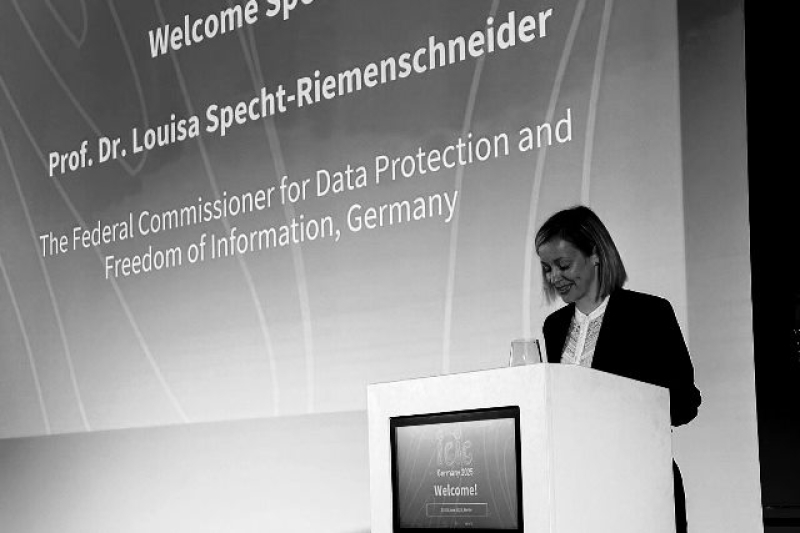- Israel Strikes Tehran with US Support Amid Nuclear Tensions |
- India Sees 9% Drop in Foreign Tourists as Bangladesh Visits Plunge |
- Dhaka Urges Restraint in Pakistan-Afghan War |
- Guterres Urges Action on Safe Migration Pact |
- OpenAI Raises $110B in Amazon-Led Funding |
Freedom of Information Under International Pressure
The Future of Freedom of Information is Digital

Opening-Speech being made at the 16th International Conference of Information Commissioners in Berlin.
Berlin, Germany – June 24, 2025: From June 23 to 26, 2025, Berlin becomes the global hub for transparency and accountability as it hosts the 16th International Conference of Information Commissioners (ICIC). The conference is graciously hosted by the Federal Commissioner for Data Protection and Freedom of Information (BfDI) of Germany.
As a premier global forum, the ICIC brings together Information Commissioners, Ombudspersons, and oversight bodies responsible for ensuring public access to government-held information. The conference’s central aim is to advance transparency, accountability, and participatory governance by protecting and promoting access to public information as a fundamental human right and cornerstone of democratic societies.
This year’s theme — "Freedom of Information Under International Pressure – The Future of Freedom of Information is Digital" — comes at a critical time, when digital innovation and political shifts are reshaping the landscape of transparency.
A Vision for Digital Freedom of Information
The 2025 ICIC Conference calls for a bold, future-ready vision for how access to information can evolve in a digital age. Key proposals and points of discussion include:
End-to-End Digital Processes: Transitioning from outdated, paper-based systems to fully digital workflows that ensure seamless, timely, and inclusive access to information. AI-Assisted Document Analysis: Leveraging artificial intelligence to expedite document classification, redaction, and release, reducing delays and eliminating burdensome user fees.
Mainstreaming Freedom of Information: Embedding access to information in broader state modernization agendas to create public administrations that are transparent, efficient, and citizen centric. Special focus will be placed on the need for digitally accessible environmental information, with civil society organizations and media professionals playing a pivotal role in democratizing climate-related data and holding authorities accountable.
Challenges and Opportunities in the Global ATI Landscape
Despite progress, access to information (ATI) remains under pressure. The ICIC will address pressing obstacles and promising developments:
Legal Barriers and Political Resistance: Some governments continue to restrict information through opaque laws or political interference, while budget constraints hamper effective oversight. Global Progress in ATI Laws: Since 2015, nearly one-third more countries have adopted ATI legislation, with some enhancing enforcement via independent commissions.
SDG 16.10 Integration: As part of the UN's Sustainable Development Goals, SDG 16.10 emphasizes public access to information, thereby enhancing global efforts for transparency and accountability. Digital and Civic Innovation: Open data portals, machine-readable formats, civic tech platforms (e.g., Alaveteli, OpenStreetMap, Ushahidi), and AI tools are transforming how citizens access and interpret public data. International Cooperation: Institutions such as UNESCO continue to provide critical support to ATI implementation, particularly in the Global South, through capacity-building and technical assistance.
Looking Ahead
As authoritarianism and disinformation threaten transparency globally, the ICIC stands as a beacon of collective resolve to safeguard and expand access to public information. This year's conference invites governments, civil society, technologists, and international bodies to collaborate on ensuring that the future of freedom of information is digital, inclusive, and resilient.

